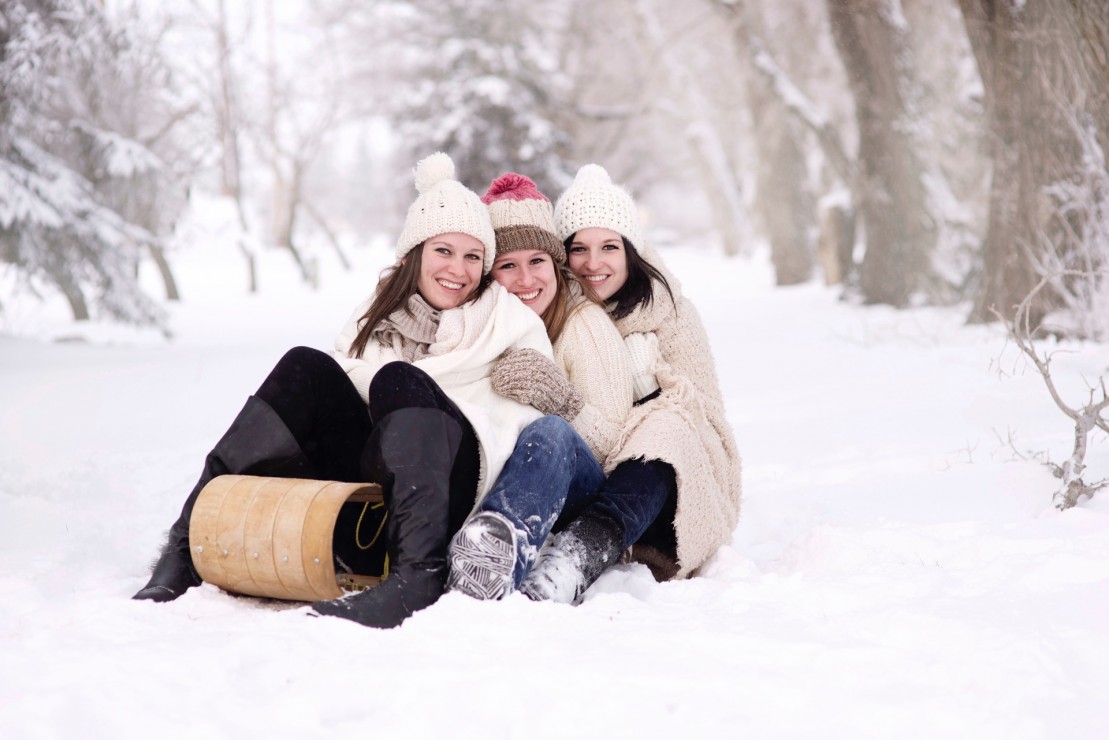
You might be smiling now, but you won’t be when our planet continues to cook. Stock image via pexels.com
Welcome back, winter! I know most of you West Coasters aren’t familiar with water in its crystallized form (oh my sweet, summer children) but as for the rest of the country, we’re pretty used to it.
According to The Weather Network, we’ll experience “a return to the classic Canadian winter weather this year” instead of the abnormally mild past two years. Why is this happening? You can thank our friend El Nina for that!
The CBC reported on Dec. 7 that last year’s winter was influenced by El Nino: warm ocean temperatures in the Pacific. This year, however, El Nina means an active storm season and below average temperatures delivered by cold Arctic winds. Only far north—all the way up in the territories—will we find average weather this winter.
Look on the bright side: hello ski season! The Rockies are expected to have a favourable year for resorts with an abundance of snow. (If only I could express my happiness in print with the sunglasses emoji.)
The West Coast has already begun to experience this change in season. For those of you who didn’t barricade yourself in your basement suite with enough perishable food items and 50 per cent off Domino’s pizza during this exam period, you’ve probably noticed all that white stuff on the ground this last week. Yay, snow!
Luckily for you Scrooges out there who couldn’t help but comment “snow, can you not?” on my social media, Victoria and Vancouver are of the few cities in B.C. that are expected to receive the same weather this winter. You can thank the coastal Pacific air for that!
However, while this return to a super snowy holiday season everywhere else makes me super happy (I can’t wait to hit the mountains), it comes with a bit of bad news. Environment Canada senior climatologist David Phillips told the CBC that climate change might be the reason for this winter wonderland.
“We’re seeing the Arctic ice cap is melting. We’re seeing more open water. The ice is thinner and so there’s more heat getting up from the water into the air in the Arctic,” Phillips said.
The CBC also reported that ice in Antarctica and in the Arctic are at record lows this time of year, and have even declined in land mass by twice the size of Alaska. As if 2016 couldn’t get any worse, it’s also set to be the warmest year on record. On Dec. 1, The Weather Network reported that in November temperatures were anywhere between one to eight degrees Celsius above normal.
Why is this worth noting? Because over 200 federal governments — including our own—agreed last year to lower fossil fuel emissions this century in order to limit global temperature rise to below two degrees Celsius above pre- industrial levels.
And not to make this about Kinder Morgan (but I’m going to), I can’t help but question how Canada will uphold its commitment to its environmental promises when we’re planning to build more infrastructure for fossil fuels. On Nov. 30, Kathryn Harrison wrote in the Globe and Mail that by increasing Canada’s bitumen exports, we’re actually betting against the success of the Paris climate agreement.
So as much as I hate to say it, we can thank global warming for this snow. Or maybe even Trudeau. But I suggest you get out and enjoy it—unless some serious change is implemented, we might start seeing less and less of it.







